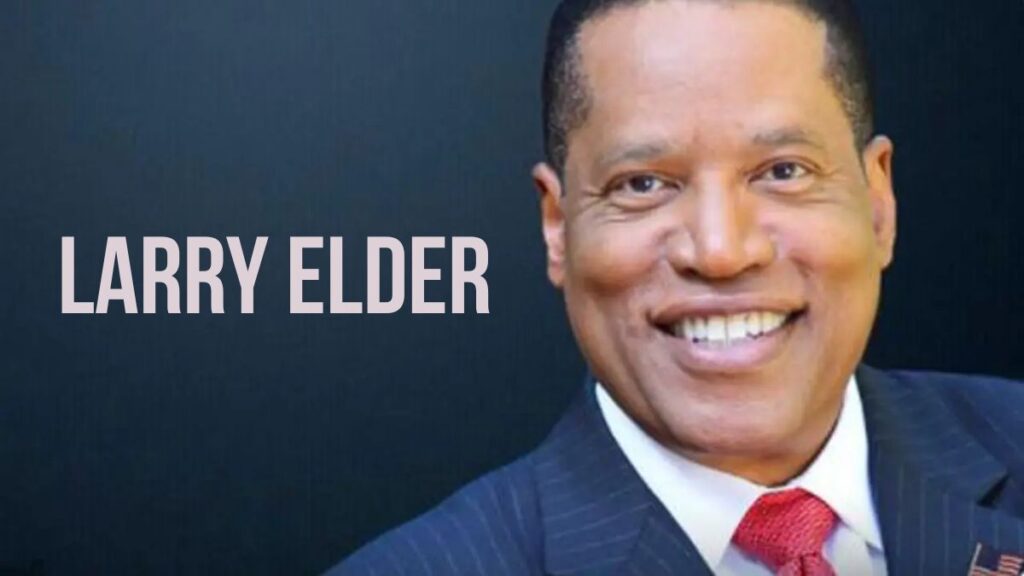Introduction to Larry Elder
Larry Elder has become a significant figure in American politics, captivating audiences with his bold opinions and charismatic presence. Once known primarily as a radio host, he has transformed himself into a political icon, stirring both admiration and controversy along the way. His journey from the airwaves to the political arena reflects not only his personal ambition but also the changing dynamics of modern conservatism. With an electrifying blend of wit and conviction, Larry Elder is reshaping discussions across California and beyond. Join us as we explore how this dynamic personality rose to prominence and what it means for the broader political landscape.
Early Life and Career as a Radio Host
Larry Elder was born on April 27, 1952, in Los Angeles. Raised in a middle-class African American family, he faced the challenges of growing up during a time of racial tension. His experiences shaped his worldview and influenced his future endeavors.
Elder attended Brown University, where he earned a degree in political science. This academic background laid the groundwork for his later career as an influential voice in conservative media.
In the late ’90s, Larry found his passion for radio broadcasting. He launched “The Larry Elder Show,” which quickly gained traction among listeners seeking alternative perspectives on current events. Through captivating storytelling and sharp commentary, he carved out a niche that resonated with many Californians.
His engaging style and willingness to tackle controversial topics set him apart from other hosts. As he built his reputation, it became clear that Larry Elder was more than just a radio personality; he was emerging as a significant figure in American politics.
Political Views and Controversial Statements
Larry Elder’s political views are as bold as his personality. A staunch conservative, he frequently challenges the status quo. His opinions on race and social issues often spark intense debate.
Elder has been vocal against affirmative action, arguing it perpetuates dependency rather than empowerment. This stance has led to both fervent support and vocal criticism.
His comments on police brutality have also drawn attention. While some see him as a voice of reason advocating for law enforcement, others view his remarks as dismissive of systemic issues.
He doesn’t shy away from discussing controversial topics like reparations either. This willingness to engage with contentious subjects sets him apart in the political arena.
Through provocative statements, Larry Elder continues to shape conversations around race relations and governance, making headlines regularly while solidifying his role in American politics.
Running for Governor of California
Larry Elder’s bid for the governorship of California marked a pivotal moment in his career. Campaigning as a Republican, he aimed to challenge the political status quo in a predominantly blue state. His slogan resonated with many who felt disenfranchised.
Elder capitalized on issues like homelessness and rising crime rates. He promised to bring change by focusing on economic recovery and personal freedoms. This appeal attracted significant media attention, propelling him into the spotlight.
His campaign was not without controversy. Statements made during debates sparked heated discussions among supporters and opponents alike. Critics often labeled him divisive, while his followers praised his candor.
Despite facing formidable challenges, Elder’s campaign energized conservative voters across California. The enthusiasm he generated showcased a potential shift in political dynamics within the state, illuminating deep-seated frustrations that many residents share today.
Responses from Supporters and Critics
Larry Elder has sparked a passionate response from both supporters and critics alike. His backers often celebrate his outspoken views as a refreshing take on politics, especially in California’s liberal landscape. They admire his ability to challenge the status quo and advocate for free-market principles.
On the other hand, critics have not held back their disdain. Many accuse him of promoting divisive rhetoric that undermines unity. His controversial statements about race and social issues have drawn sharp rebukes from various groups.
Supporters argue that Elder provides much-needed representation for conservative voices in a predominantly blue state. Yet, detractors contend that his policies could lead to further polarization rather than solutions.
This dynamic between admiration and criticism keeps Elder at the forefront of political discourse, making him a figure many cannot ignore or dismiss easily.
Impact on the Political Landscape
Larry Elder’s entry into politics has certainly stirred the pot. His straightforward approach resonates with many who are tired of traditional political rhetoric. This authenticity attracts a diverse audience, eager for change.
His candidacy helped to amplify issues often overlooked by mainstream politicians. He brought discussions about crime rates, education reform, and fiscal responsibility to the forefront of public discourse.
Elder’s rise also highlights a growing divide in California’s electorate. As he champions conservative values in a predominantly liberal state, his influence challenges conventional wisdom about voter alignment.
Moreover, his presence encourages others from non-traditional backgrounds to seek office. Larry Elder embodies the notion that anyone can make an impact if they have something meaningful to say and a platform to share it on.
This shift is slowly reshaping how candidates position themselves within their parties and attract support across ideological lines.
The Future of Larry Elder’s Career
Larry Elder’s career trajectory is anything but predictable. With a strong foothold in conservative media, he has become a voice for many disillusioned voters.
His recent run for governor of California showcased his appeal beyond radio waves. It demonstrated his potential to influence mainstream politics significantly.
As public interest grows, so do opportunities for Elder. He could leverage his platform into further political aspirations or even national prominence. A Senate campaign might be on the horizon, and some speculate about presidential ambitions down the line.
Regardless of where he heads next, Elder’s unique style ensures that he will remain relevant in today’s evolving political landscape. His supporters see him as a champion of their values while critics continue to challenge his views.
This dynamic interplay keeps discussions around Larry Elder vibrant and engaging within American politics.
Conclusion
Larry Elder journey from radio host to a prominent political figure showcases the transformative power of media in shaping public discourse. His unique ability to connect with audiences through his shows laid the groundwork for his later endeavors in politics.
As he navigated the complexities of California’s gubernatorial race, Elder garnered both dedicated supporters and fierce critics. His unapologetic approach and controversial statements stirred conversations across various platforms, challenging traditional narratives within the political landscape.
Elder has undeniably made an impact on how conservative voices are perceived in often liberal-leaning California. The fervor surrounding his campaign highlights a growing desire for change among certain voter demographics.
Looking ahead, Larry Elder’s future remains uncertain but intriguing. Whether he continues to pursue political office or returns to his roots in broadcasting, one thing is clear: he has already secured a place as an influential figure worth watching closely as America’s political climate evolves.







